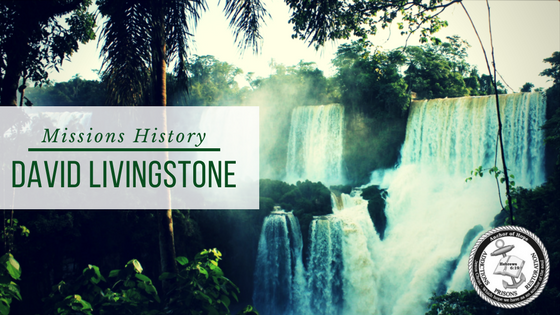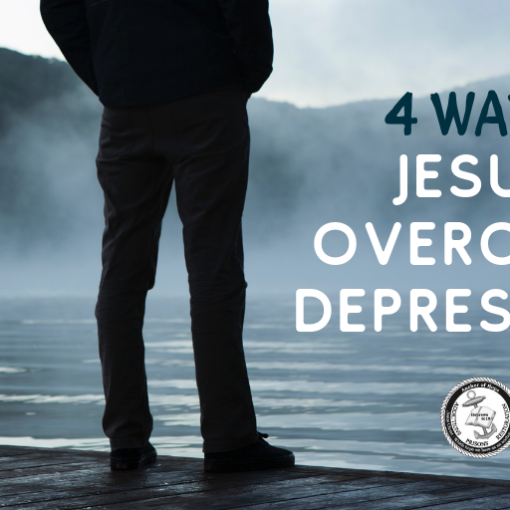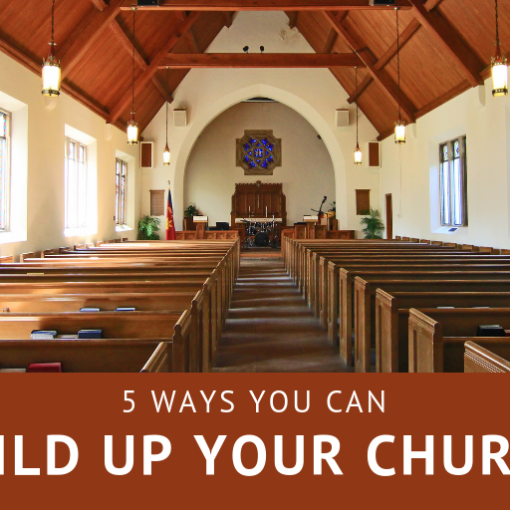
“There is one safe and happy place, and that is in the will of God.”
-David Livingstone
From a small Scottish village to the heart of the African jungle, God called a young man named David Livingstone. He would become one of the best-known missionaries of the 19th century. Livingstone blazed a trail into regions of Africa where no white man had ever been, taking the light of the gospel into the darkness. In our prison ministries, we too seek to share the light of the gospel.
Here is David Livingstone’s courageous story.
Born in 1813 in Lanarkshire, Scotland, David Livingstone grew up in a devoutly Christian working-class family. His parents instilled in him a deep love for education, and young David became an eager student.
Although he had to begin work at the cotton factory when he was only ten years old, he brought books to work so he could read in his spare moments.
When David was a young man, churches in Britain and America were calling for medical missionaries to serve in China. Willing to go, David decided to study medicine to prepare for service in China. Although he was approved to join the London Missionary Society in 1838, the Opium Wars of 1839-1842 put an end to his plans.
But a speech he heard would shape the course of his life—and the lives of many others—in a dramatic way. Young David attended a lecture by the visiting missionary Robert Moffat, who served in Africa.
Moffat described the pressing need of reaching Africa for Christ in these words, “I have sometimes seen, in the morning sun, the smoke of a thousand villages where no missionary has ever been.”
Livingstone was deeply impressed with the need for missionaries, and he became convinced that God was calling him to Africa. David was ordained as a missionary and set sail at the end of 1840. He began serving in the southern part of Africa and founded a new mission station among the Bakwena people.
After surviving an attack by a lion, David went to the Moffats’ home to recuperate and fell in love with their daughter, Mary. They were married soon after.
Yet he was constantly restless and longed to go further into the heart of Africa. He wanted to reach those ten thousand villages where no missionaries had ever been. David dreamed of opening a “Missionary Road” that would snake 1,500 miles into the interior. He began lengthy expeditions into the jungle, gathering information and learning about local cultures and languages.
In 1852, David had to send his wife and four children back to Scotland for their safety and the children’s education. He stated in 1853, “I shall open up a path into the interior, or perish.” For the next three years, he went further than any Caucasian man had gone before, travelling from the Atlantic to the Indian Ocean. David also discovered and named Victoria Falls after his empire’s queen.
In 1856, David returned to Britain and received a hero’s welcome. He published a book about his explorations entitled Missionary Travels and Researches in South Africa. For the next six months, he spoke to audiences across Great Britain about his travels, his anti-slavery beliefs, and his hopes for the future.
Livingstone would go on to make two more daring expeditions into the interior of Africa. He travelled farther west than any European had gone before. But, by 1871, his health was failing, and he had no communication with the outside world. He must have been overjoyed to receive a visit from reporter Henry Stanley, who greeted him with the now-famous words, “Dr. Livingstone, I presume?”
After exploring together for several months, Stanley pleaded with Dr. Livingstone to return to England. But the reporter’s words fell on deaf ears. Despite his poor health, Livingstone was determined to stay faithful to God’s call. On April 30, 1873, his two servants found him dead, still kneeling in prayer at his bedside. According to David’s wishes, his heart was buried under a tree in Africa, and his body sent home to England.
What motivated David Livingstone to risk his life time and time again? What gave him the courage to take the gospel where no white man had ever gone before? Here is his answer.
“Shall I tell you what supported me through all those years of exile among a people whose language I could not understand and whose attitude towards me was always uncertain and often hostile? It was this: ‘Lo, I am with you alway, even unto the end of the world.’”
Today, we serve the same God that David Livingstone served. In our prison ministries, we are so thankful that He is with us always. This truth gives us the courage to follow God wherever He leads us.
________________________________________________________________
Are you searching? Jesus has the answers for addictions and stubborn habits. For more information, send the Crossmans a private message here on Facebook or come to a church service at Prince Albert Baptist Church. Take the first step in a walk of freedom!
For more information, call (306) 940-9554 or email anchorofhopeheb@gmail.com




